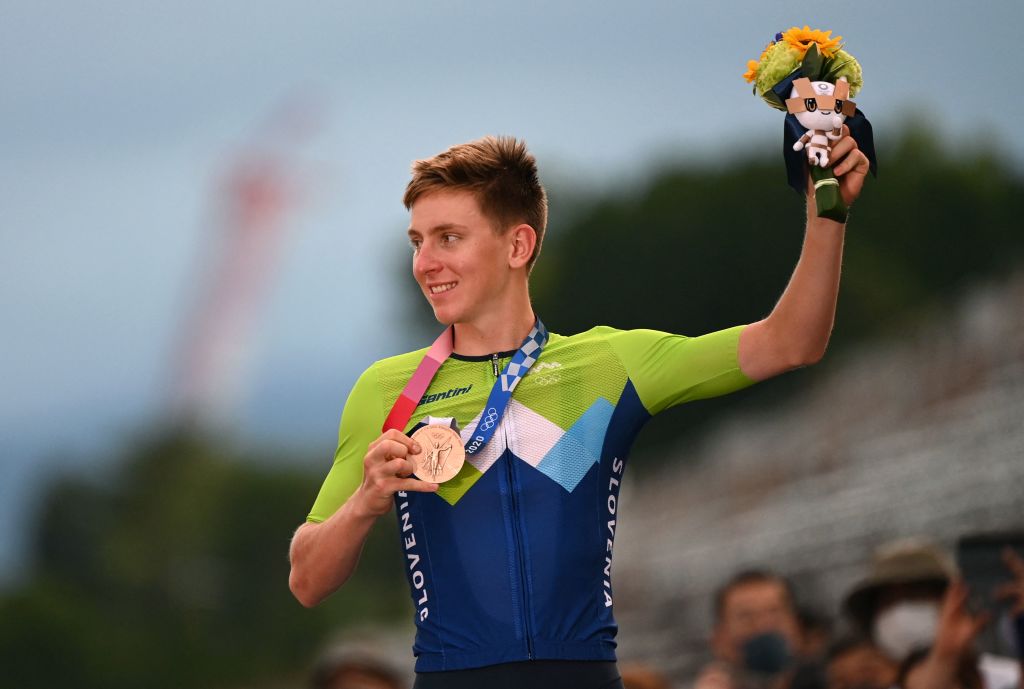Pogacar: I don't know what I was thinking with my Olympics attack
Slovenian regrets Mikuni Pass aggression but delights in bronze medal

Tadej Pogačar expressed some regrets over the way he raced at the Olympics on Saturday, but not the outcome. The Tour de France champion appeared thrilled to win a medal in Saturday’s road race, even if it was bronze rather than gold.
“It’s something I cannot describe. I’m super happy – super super happy,” he said in the medal winners’ press conference.
His words echoed those to Slovenian television minutes previously; “I can’t describe the emotion that’s filling me. I’m speechless.”
Pogačar was among the top rank of favourites for the men’s road race, given the form he recently displayed en route to his second yellow jersey, and given he won Liège-Bastogne-Liège, one of the biggest and hilliest one-day races, back in April.
He duly stepped up, launching the first big attack of the entire race on Mikuni Pass. Belgium had whittled down the field but Pogačar’s move on the steep climb truly opened up the race.
“I’d seen the final climb on our recon, and I felt good at the bottom, but I actually don’t know what I was thinking when I attacked. I tried my best but soon I was regretting it and hoping for the climb to finish," he said.
Pogačar soon found company in the form of Brandon McNulty (USA) and Michael Woods (Canada), before 10 more riders came across nearer the top to form an elite selection for the finale.
The latest race content, interviews, features, reviews and expert buying guides, direct to your inbox!
“When the group of favourites formed, I was pretty happy with it,” Pogačar said. “I think a solo ride would not have been a good idea – too hard.”
With the major climbs out of the way, the attacks started to rain from that leading group. Pogačar marked a couple but when McNulty accelerated, Richard Carapaz (Ecuador) jumped on board and would ride all the way to the gold medal. The chase group was cagey and uncoordinated, with Pogačar and Wout van Aert (Belgium) forced to shoulder the lion’s share of the work.
“I suffered from the last climb. I tried to attack, but they did it one after the other. It was hard to be collected and stay on the wheels of the others,” Pogačar said.
“In our group there was more interest in winning a medal than in gold. I had it in mind myself, but in the end I saw that it was impossible as Carapaz was too strong. I focused to sprint, the adrenaline rushed me to the line.”
Pogačar took Van Aert’s wheel for the sprint and surged out to the right in a bid to snatch the silver medal, but a photo finish confirmed it was bronze.
“I gave so much of myself that I didn't know if I was second or third. It doesn't even matter; a medal is a medal, as we say. It's something amazing.”
Patrick is a freelance sports writer and editor. He’s an NCTJ-accredited journalist with a bachelor’s degree in modern languages (French and Spanish). Patrick worked full-time at Cyclingnews for eight years between 2015 and 2023, latterly as Deputy Editor.
